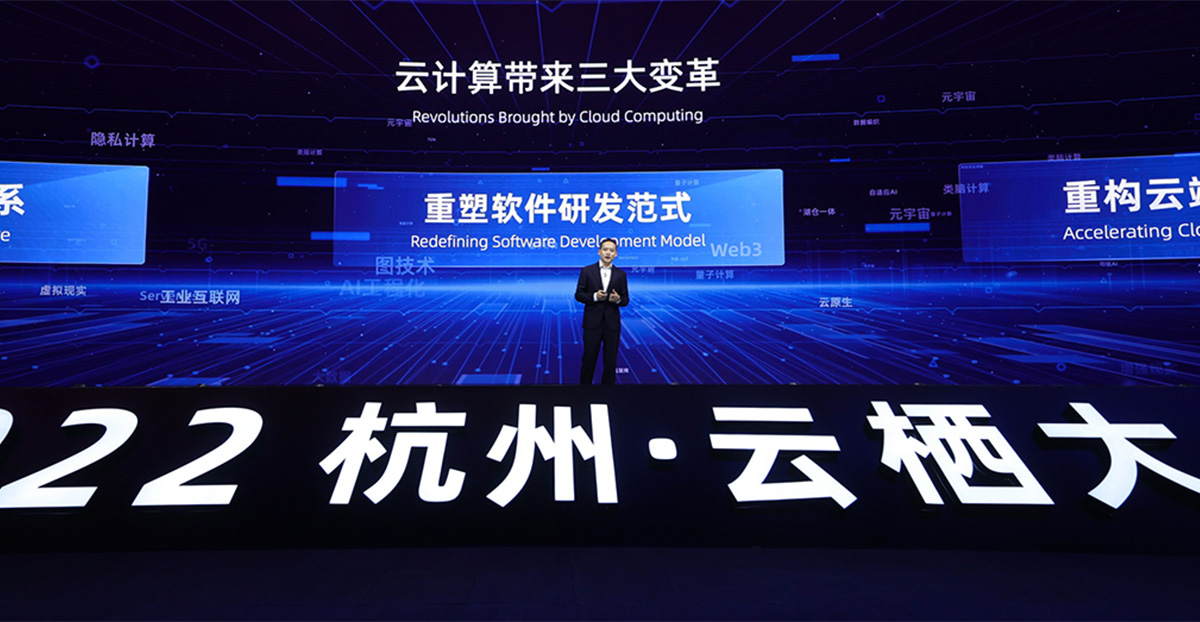Alibaba Cloud Launches ModelScope Platform and New Solutions to Lower the Threshold for Materializing Business Innovation
- Hundreds of AI models are made accessible on a brand new open-source platform
- Key serverless solutions launched to enable better product deployment and development
Alibaba Cloud, the digital technology and intelligence backbone of Alibaba Group, started its annual Apsara Conference today by announcing the launch of ModelScope, an open-source Model-as-a-Service (MaaS) platform that comes with hundreds of AI models, including large pre-trained models for global developers and researchers. During its flagship conference, the global leading cloud provider also introduced a range of serverless database products and upgraded its integrated data analytics and intelligent computing platform to help customers further achieve business innovation through cloud technologies.
“Cloud computing has given rise to a fundamental revolution in the way computing resources are organized, produced and put to commercial use while shifting the paradigm of software development and speeding up the integration of the cloud and endpoint terminals.” Jeff Zhang, President of Alibaba Cloud Intelligence, “As more customers are speeding up with their cloud adoption, we have been upgrading our cloud-based resources, services and tools to become serverless, more intelligent and digitalized in order to lower the barrier for companies to adopt new technology and capture more opportunities in the cloud era.”
MaaS to create transparent and inclusive technology community
The ModelScope platform is today launched with over 300 ready-to-deploy AI models developed by Alibaba DAMO Academy (“DAMO”), Alibaba’s global research initiative, in the past five years. These models cover various fields from computer vision to natural language processing (NLP) and audio. The platform also includes more than 150 state-of-the-art (SOTA) models, which are recognized globally as the best in their respective fields for achieving the results in a given task.
Also made available on the platform are Alibaba’s proprietary large pre-trained models such as Tongyi, which is capable of turning text into image with five billion parameters, and OFA (One-For-All), a six billion-parameter pre-trained model that excels at cross-modal tasks such as image captioning and visual question answering. Independant developers have also contributed dozens of models to the open-source platformn to date.
As an open-source community, ModelScope aims to make developing and running AI models easier and more cost effective. Developers and researchers can simply test the models online for free and get the results of their tests within minutes. They can also develop customized AI application by fine-tuning existing models, and run the models online backed by Alibaba Cloud, or deploy them on other cloud platforms or in a local setting.
The launch underscores DAMO’s ongoing efforts and commitment to promote transparent and inclusive technology by reducing the threshold for building and running AI models, enabling universities and smaller companies to easily use AI for their research and in their business respectively. The community is expected to grow further with more quality models available on the platform from DAMO, partners from research institutes and third-party developers in the near future.
New and upgraded solutions to increase computing efficiency
Staying ahead of the emerging trend of serverless software development, Alibaba Cloud is making its key cloud products serverless to enable customers to concentrate on product deployment and development without worrying about managing servers and infrastructure. Essentially, Alibaba Cloud’s updated products focus on turning computing power into an on-demand capability for users.
Examples of these are the cloud native database PolarDB, the cloud-native data warehouse AnalyticDB (ADB) and ApsaraDB for Relational Database Service (RDS). Leveraging Alibaba Cloud’s serverless technologies, customers can enjoy automatic scaling with extreme elasticity based on actual workloads and a pay-as-you-go billing model to reduce costs. The automatic elastic scaling time on demands can be as little as one second. The use of updated database products can help businesses in the Internet industry reduce their costs by 50%, on average, compared to using traditional ones. Currently, Alibaba Cloud has more than 20 serverless key products in total and is adding more product categories to become serverless.
Alibaba Cloud also upgraded its ODPS (Open Data Platform and Services), a self-developed integrated data analytics and intelligent computing platform, to provide companies with diversified data processing and analytics services. The platform can handle both online and offline data simultaneously in one system, providing businesses dealing with complex workloads with analytics for business decision-making with reduced cost and increased efficiency.
ODPS has refreshed global records for big data performance, according to recent results from the Transaction Processing Performance Council (TPC), an industry council that sets the standards for transaction processing and database benchmarking. Evaluated based on a 100 TB data benchmark, the performance of ODPS Maxcompute Cluster attained the top score for the sixth consecutive year. ODPS Hologres Cluster also shown a record-breaking result in the TPC-H 30000GB decision support benchmark test.
To drive workload collaboration between cloud and local hardware, Alibaba Cloud has announced the launch of the Wuying Architecture with a showcase on its applications on the Wuying Cloudbook. The Cloudbook with dedicated Architecture is designed to help users access unlimited computing power on the cloud in a more secure and agile manner while supporting collaboration and flexibility at a workplace.


